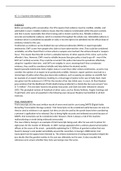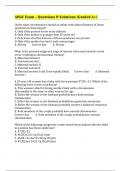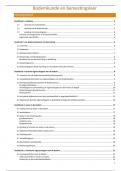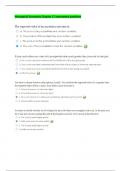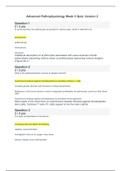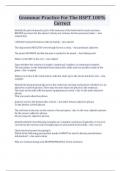Samenvatting
Summary Criminology Unit 3: AC 3.1 write up model answer
- Vak
- Instelling
- Boek
These are my answers that I used to achieve a near perfect 95/100 marks on the Year 13 Unit 3 Criminology controlled assessment. Of course, I changed it as needed during the exam, but these were the backbones of my answers. This resource covers AC 3.1. I initially found it difficult to imagine how ...
[Meer zien]
